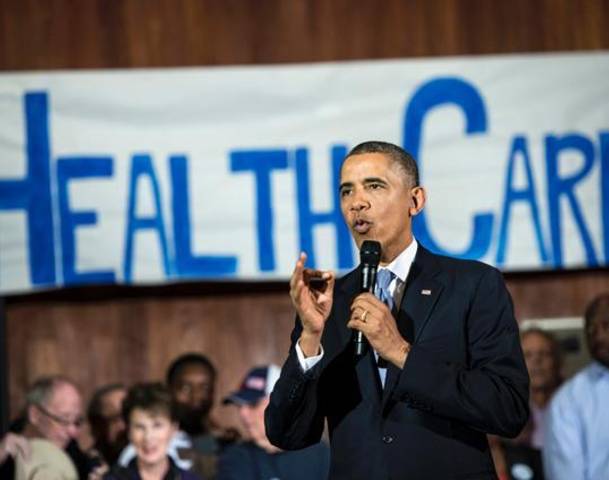Though the midterm elections are months away, Washington is now turning its attention to Congressional races. Republicans are likely to hold on to the House of Representatives because they redrew the boundaries of congressional districts in 2010. Senate Democrats are less confident. Their main concern right now is the Affordable Care Act’s impact on weary voters, especially in southern and western states, where Republicans hope to make inroads by making opposition to the law the centerpiece of their Senate campaigns.
But the U.S. Congress may be a sideshow. The real action might be in battleground states like Florida, Ohio, Pennsylvania, Michigan, Iowa, and Wisconsin whose Republican governors are up for reelection. Every one of them either balked at setting up insurance exchanges of their own, refused to accept fully-funded Medicaid coverage for millions of state residents, or both. Some Congressional Republicans envision 2014 as another referendum on the Affordable Care Act, but it could be the opposite: a referendum on the Republican Party’s obstruction to the law. That referendum will be decided in the states, not in Washington.
As months go by, it won’t be surprising to see Democrats running for Congress or for state office fully embracing the Affordable Care Act. As they should.
Even as some Democrats are keeping a distance from the health care law, Republican governors are now finding they can’t get away from it for a simple reason: growing and, in some cases, quickly growing demand for what the Affordable Care Act does. President Obama announced recently that 4 million Americans have signed up to buy private health insurance through state or federal exchanges. In February, about 700,000 have registered for health insurance, or around 233,000 people every week. That’s on top of 6 million made eligible for expanded Medicaid coverage as well as 3 million under age 26 staying on their parents’ insurance plans. All together, some 13 million Americans now have a direct stake in the health care law.
The administration will likely come up short of its goal of registering 6 million paying customers by the end of March, and questions linger about who is buying, whether they are first-timers or whether they are going to pay. But a recent poll provides a degree of clarity. It suggests that the Affordable Care Act is reaching those it was most intended to reach. According to a Gallup survey based on 19,000 phone interviews, the percentage of uninsured Americans declined to 16 percent this month, down from 18 percent in January.
What’s more, the survey found that the percentage of uninsured “young invincibles” (those between ages 26 and 34) has been falling faster than any other age group. The Los Angeles Times reported that the average age of insurance buyers dropped from 45 in October to 36 in February, according to EHealthInsurance.com, a broker. As a result, the average premium fell from $370 to $273 a month so far in 2014. Again, that’s what the law was designed to do: lower health care costs for everyone by making everyone join the risk pool.
All this is bearing down on Republican governors as they try to hold to their states for the 2016 presidential election. Yet time is working against them. The more Americans experience the Affordable Care Act, the harder it will be for GOP governors to remain in lockstep with the national party’s decision to oppose the law on all fronts. Indeed, this tension was evident during a meeting of the Republican Governors Association in Washington last week, when Michigan Governor Rick Snyder said he had issues with the health care law but it was the law of the land nonetheless. “I’m trying to work in that context,” he said.
As Republican governors pivot to a defensive posture, Democrats may end up pressing their advantage. But that too will take time. Democrats like Florida’s Alex Sink, who is running to fill the late Bill Young’s House seat in a special March election, have wisely chosen to be cautious. But as months go by, it won’t be surprising to see Democrats running for Congress or for state office fully embracing the Affordable Care Act. As they should.
John Stoehr is the managing editor of The Washington Spectator.







0 Comments